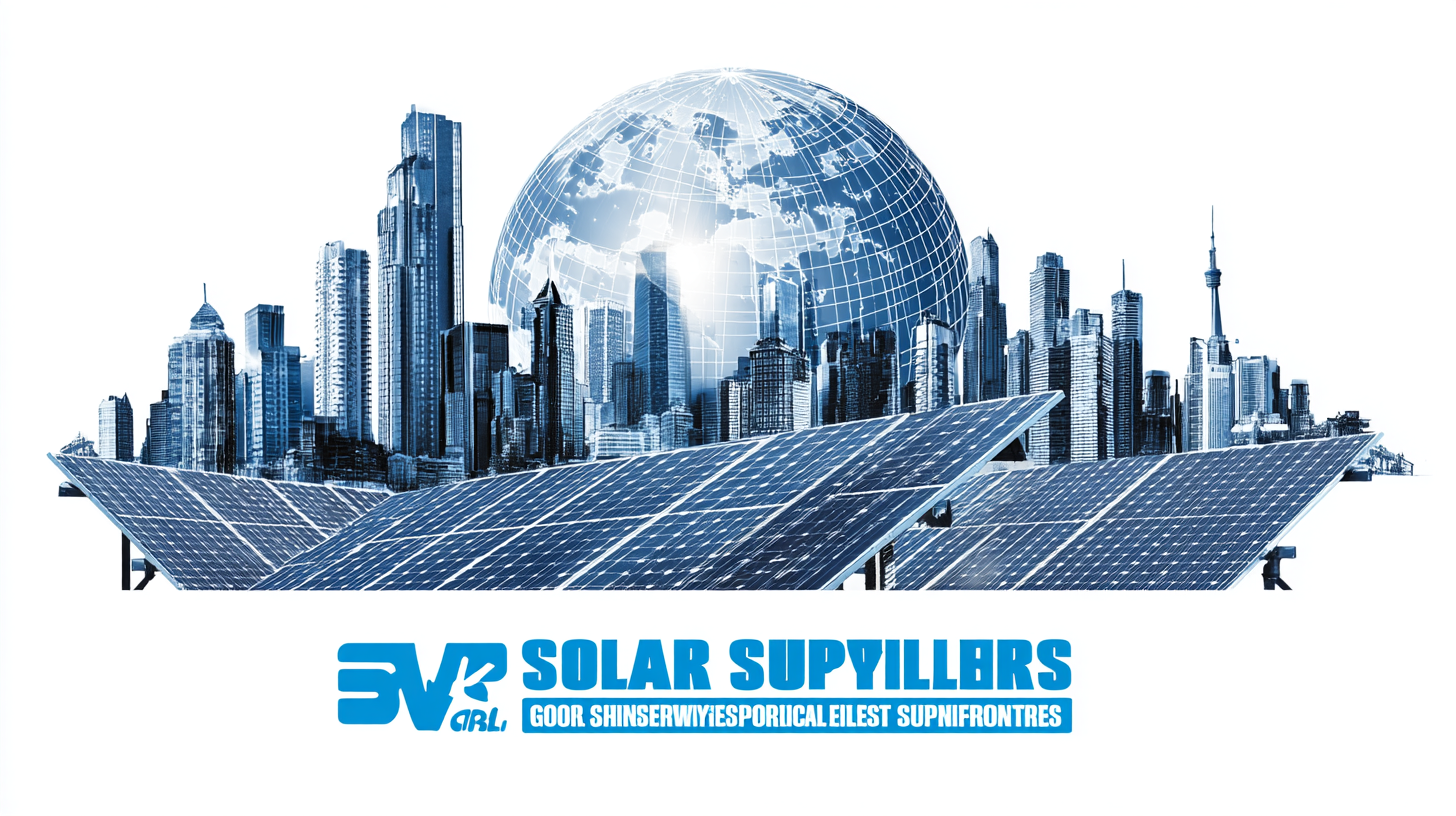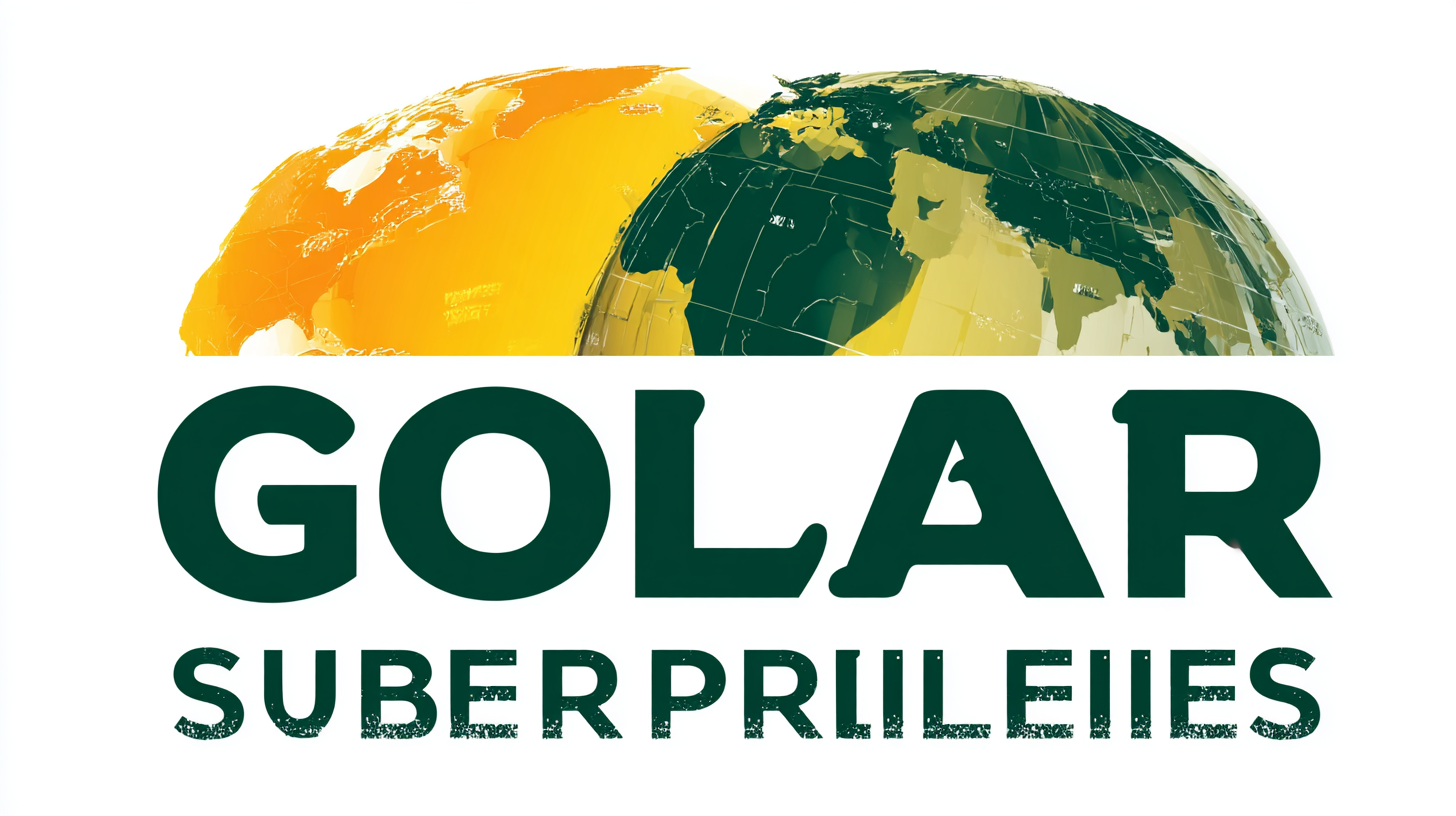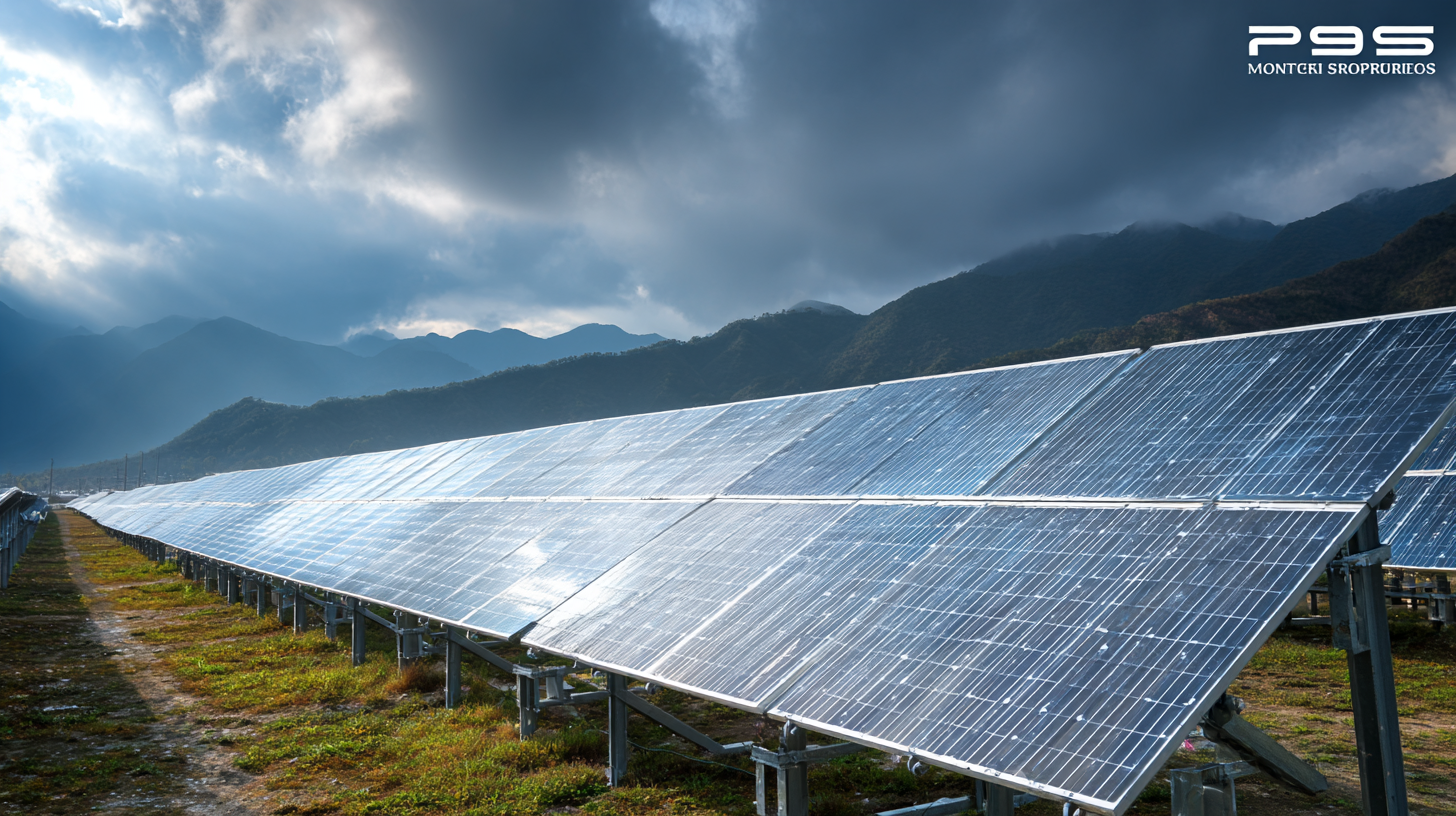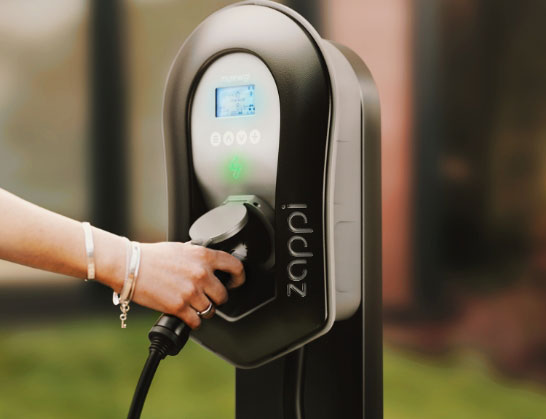Unlocking Sustainable Energy Solutions by Choosing the Best Solar Panel Suppliers for Global Procurement
As the world increasingly pivots towards sustainable energy solutions, the role of solar panel suppliers has never been more critical. According to a report by the International Energy Agency (IEA), global solar power capacity is projected to reach 1,100 gigawatts by 2025, reflecting an exponential growth driven by technological advancements and cost reductions in solar technologies. This phenomenal surge in demand emphasizes the importance of selecting the best solar panel suppliers for efficient global procurement. Reliable suppliers not only provide innovative products but also contribute to the wider adoption of renewable energy, ensuring that nations can meet their ambitious climate goals. As we explore the technological trends projected for 2025, understanding how to navigate the landscape of solar panel suppliers is essential for unlocking effective and sustainable energy solutions globally.

Identifying Key Factors for Selecting Top Solar Panel Suppliers in Global Markets
In the quest for sustainable energy solutions, selecting the right solar panel suppliers is crucial to ensure quality, efficiency, and reliability. One of the primary factors to consider is the supplier's reputation and track record in the global market. Established suppliers typically have proven technologies and strong customer reviews, which can provide insights into their product performance and service support. Additionally, evaluating their certifications and compliance with international standards can further gauge the supplier's commitment to quality and safety in production.
Price competitiveness is another key factor that should not be overlooked. While the initial cost is important, it’s essential to analyze the long-term return on investment, including the efficiency and longevity of the solar panels. Choosing suppliers that provide comprehensive warranties and customer service can significantly enhance the overall value proposition. Finally, understanding the supplier’s supply chain and logistics capabilities can help ensure timely delivery and support, which are vital for maintaining project timelines and reducing unforeseen costs.
Comparing Solar Panel Technologies: Efficiency, Durability, and Cost Considerations
When it comes to choosing the right solar panels for sustainable energy solutions, understanding the technology behind them is crucial. In today’s market, three primary types of solar panel technologies dominate: monocrystalline, polycrystalline, and thin-film.
Monocrystalline panels are known for their high efficiency rates, often exceeding 20%, and their sleek design. They are ideal for rooftop installations where space is limited. However, this performance comes at a premium price, making them a significant investment.
On the other end of the spectrum, polycrystalline panels offer a more cost-effective solution while still providing decent efficiency levels, typically between 15% and 20%. These panels are made from multiple silicon fragments fused together, resulting in a blue, speckled appearance. While they are slightly less efficient than their monocrystalline counterparts, their affordability makes them a popular choice for large-scale installations.
Lastly, thin-film technology provides the flexibility and versatility that is advantageous for various applications, despite their lower efficiency (around 10% to 12%) and shorter lifespan. Each of these technologies has its own set of pros and cons, and understanding these factors is essential for making informed procurement decisions in the global solar market.
Evaluating Supplier Credentials: Certifications, Reputation, and Customer Reviews
When embarking on the journey to procure solar panels for sustainable energy solutions, evaluating supplier credentials is paramount. A reliable supplier should come equipped with industry certifications, such as ISO 9001 for quality management and IEC standards for product safety and performance. These certifications not only assure you of the manufacturer's compliance with industry best practices but also reflect their commitment to maintaining high standards in their production processes.
Reputation plays a critical role as well. Researching the supplier's history, years in the business, and market presence can provide insight into their reliability and stability. Engaging with customers who have previously worked with the supplier can yield valuable feedback. Online reviews and testimonials offer a glimpse into the supplier's performance, customer service, and product quality. By focusing on these factors, you can make an informed decision and partner with suppliers who are not just capable but also committed to promoting sustainable energy initiatives globally.
Strategies for Effective Global Procurement of Solar Panels: Best Practices and Tips
When embarking on global procurement of solar panels, it's essential to adopt effective strategies that ensure sustainability and cost-effectiveness. According to the International Energy Agency (IEA), the solar power market is projected to grow exponentially, with solar capacity anticipated to reach 4,800 gigawatts by 2030. This surge underscores the importance of choosing the best suppliers who can meet quality and sustainability standards.
One crucial tip for successful procurement is to thoroughly evaluate potential suppliers based on their certifications and product warranties. Look for manufacturers with ISO certification and those that comply with international standards, as these indicators reflect a commitment to quality and sustainability. Additionally, consider suppliers who utilize recycled materials in their production process, which aligns with sustainable energy goals.
Another effective strategy is to leverage data analytics for optimal supplier selection. Utilize platforms that provide comprehensive market analysis and insights into supplier performance. Research shows that companies that employ data-driven decision-making can increase procurement efficiency by up to 20%. By integrating technology into your procurement strategy, you can streamline the selection process and identify suppliers that align with your sustainability objectives.

The Role of Innovation and Sustainability in Choosing Solar Panel Suppliers
Innovation and sustainability are at the forefront of the solar energy revolution, significantly influencing the selection of solar panel suppliers. As the demand for renewable energy sources escalates globally, suppliers are increasingly incorporating cutting-edge technologies into their products. This includes advancements such as higher efficiency solar cells, lightweight materials, and enhanced durability. By prioritizing suppliers that embrace innovation, businesses can access more efficient solar panels that not only maximize energy output but also reduce long-term costs and carbon footprints.

Moreover, sustainability extends beyond just the products themselves; it encompasses the entire supply chain. Suppliers committed to environmentally friendly practices—be it through ethical sourcing of raw materials, eco-conscious manufacturing processes, or robust recycling programs—play a critical role in fostering a true circular economy. Organizations looking to partner with solar panel suppliers should evaluate their commitment to sustainable practices, ensuring that they contribute positively to both the environment and society. This strategic focus on innovation and sustainability not only enhances the credibility of the procurement process but also aligns with the global goals of reducing reliance on fossil fuels and achieving energy independence.


